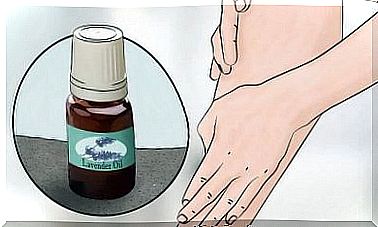You Should Clean These Items Regularly
As part of your household routine, you should also remember to clean certain items regularly.

House cleaning involves cleaning the smallest corners, but there are items that you should clean regularly, but that you don’t think about at first. It is more important to clean some items than others. Find out which items you should really clean regularly !
What should you clean regularly?
If we tell you today which items you should clean regularly, then we would like to assume that you know certain basic rules of cleanliness, cleanliness and hygiene in the household.
This includes that you regularly clear your home of rubbish and rubbish, clean the kitchen and bathroom regularly and make sure that no vermin move into your four walls.
But there are small areas that you have to clean regularly, but that you rarely think of:

mobile
When was the last time you cleaned your smartphone? If anything, it must have been a long time ago. But remember that you distribute all the germs on your smartphone that accumulate on your fingers during the course of the day.
Surely you don’t wash your hands after coming into contact with cash before you pick up your cell phone, do you?
This is just one example of how many sources of bacterial and virus spill there are on your phone. The best way to clean your cell phone is with a disinfectant.
Alternatively, pure alcohol also works. Either way, soak a rag in the agent and thoroughly wipe all surfaces of your phone with it. The more you do this, the better! What applies to smartphones, of course, also applies to tablets.

Kitchen sponge
You should also clean the kitchen sponge regularly. The fact that you use the sponge to clean your dishes does not mean that the sponge will be clean afterwards. Leftover food and moisture in the sponge are ideal breeding grounds for germs.
Get in the habit of pouring boiling water over the sponge about once a day, for example from the kettle.
Alternatively, you can wash the sponge at 60 ° C, for example together with towels, in the washing machine. Remember to replace the sponge regularly regardless.

towels
One might assume that towels never need to be changed, because after all, they only dry clean skin, right? If you just think about it for a moment, you’ll know for sure that it isn’t.
Not only dirt accumulates on towels, but also flakes of skin, body fluids, soap residue – and moisture. An ideal breeding ground for germs!
Get in the habit of cleaning towels regularly at a temperature of at least 60 ° C and replacing them regularly.

light switch
You should also regularly clean light switches, especially those that are placed where you operate light switches with dirty fingers: in the entrance area, the toilet and kitchen. There you distribute the germs on your hands every time the light is switched on and off.
Wipe the light switch regularly with a damp soap solution or use a disinfectant for quick cleaning in between.
This prevents you from spreading germs further via light switches. The same goes for doorknobs, by the way.

Computer keyboard
Between the keys on the keyboard and on the keys themselves, a world of biscuit crumbs, leftover coffee and other traces of everyday life often develops. And every day you stick your fingers in this dirt with every keystroke. Therefore, you should also clean the computer keyboard regularly.
To do this, first make sure that the keyboard has run out of power by removing batteries or unplugging the cable. Only then tap the keyboard upside down several times in all directions so that you remove loose crumbs. If you have a keyboard brush, use it to loosen stuck crumbs.
It’s best to spray pure alcohol or a disinfectant spray on the keyboard and let the liquid soak for a while before wiping it off. Get in the habit of cleaning your keyboard, including your laptop, on a regular basis.

Make-up utensils
Every time you beautify your face with paint, you also spread germs from brushes, sponges and applicators on your face.
Regularly cleaning make-up utensils should be part of personal hygiene, because sebum, bacteria and the moisture in the bathroom make it easy for germs.
Shampoo your brushes regularly and let them dry thoroughly. Sponges for applying make-up or powder can be washed in the washing machine, small foam applicators should be replaced regularly, because germs have no place in the eye area in particular.








